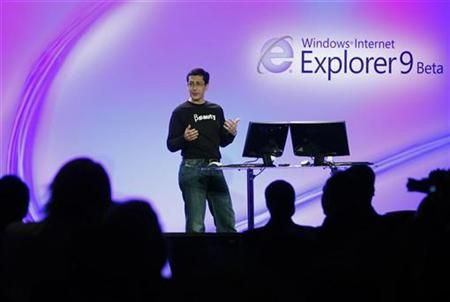Mozilla's 'Do Not Track' Method One Of Many

Mozilla Firefox is set to offer users a way to opt out of getting their browsing habits tracked by advertisers. But its method of using web site headers, essentially broadcasting an opt-out is not the only one on offer.
The Federal Trade Commission, lawmakers in Washington D.C., privacy advocates and web browsing companies have all tried to figure out the proper way to prevent people's data from being mined and sold to third parties for advertising purposes.
The FTC proposed the Do Not Track list, a piece of software installed on a browser. People could opt out of tracking, by sending the Do Not Track header to a site. It is similar to the solution Mozilla just proposed for its next version of Firefox. The difference is that it wouldn't work on sites that aren't on a blacklist.
Mozilla said its feature would allow users to set a browser preference that will broadcast their desire to opt-out of third party, behavior-based tracking. It would do this via a Do Not Track HTTP header with every click or page view in Firefox. When the feature is enabled and users turn it on, web sites will be told by Firefox that a user would like to opt-out of [online behavioral advertising]. We believe the header-based approach has the potential to be better for the web in the long run because it is a clearer and more universal opt-out mechanism than cookies or blacklists, said Alex Fowler, Mozilla's technology and privacy officer, in an emailed statement.
Browser add-on developer Brian Kennish said he doesn't see it as an ideal solution. Kennish is a firm believer in opt in, which is why he developed Disconnect for Google Chrome.
Disconnect disables tracking by third parties and depersonalizes search. Kennish said it has the ability to show users in real time what is being blocked. He said if a user goes to a page with third party resources, the software can still show what is being blocked from there. The add-on also has the ability unblock certain services and maintain usability.
I think online tracking should be opt in, Kennish said. That's what I'm hoping to do with this project, create a butterfly effect going on in the government and in browser circles, and show that there's a better way for this to be implemented, than a 'Do Not Track' registry.
Encrypt Stick also offers software that can block third party data tracking. The Vancouver-based company says its Encrypt Stick 5.0 Private Browser, available on a USB drive, leaves behind no cookies or any trail of where a user has been on the web.
Terry Johnston, head of media relations at Encrypt Stick, said, If someone is traveling and needs to log into Facebook from a Wi-Fi internet café, this reduces their vulnerability.
Encrypt Stick includes a key logging protected virtual keyboard, said Johnston. This keyboard is set to various levels of security, the highest of which scrambles a letter or number anytime it gets entered. This works against key loggers, who use screen capturing to see what a person is typing.
Mozilla's Firefox isn't the only browser to propose an anti-tracking feature. Microsoft announced in December a new opt-in Tracking Protection will be featured in the next version of Internet Explorer.
We believe that the combination of consumer opt-in, an open platform for publishing of Tracking Protection Lists, and the underlying technology mechanism for Tracking Protection offer new options and a good balance between empowering consumers and online industry needs, the company said in a blog post.
The opt-in technology will allow users to control what third-party site content can track them when they're online. It will contain a Tracking Protection List, which will have web addresses that browsers will visit only if the consumer visits them directly by clicking on a link or typing his or her address.
© Copyright IBTimes 2024. All rights reserved.



















